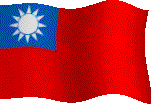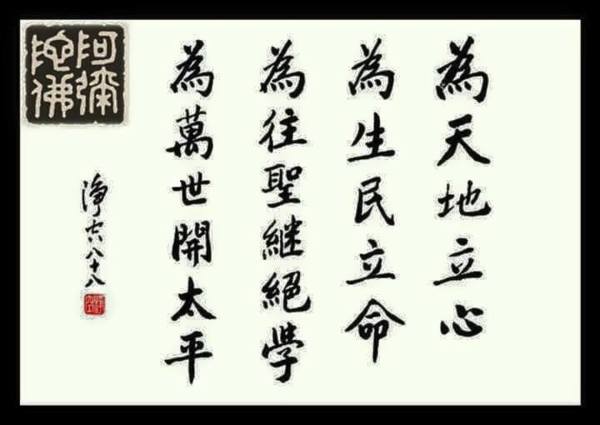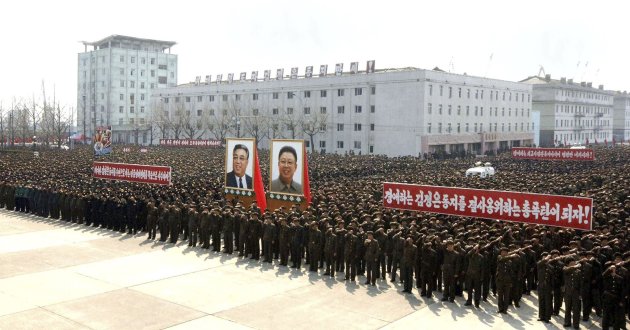By Ju-min Park
SEOUL (Reuters) - As a North Korean army signaler near the tense sea border with the South, Lee So-yeon was given live ammunition and a steel helmet during a 1993 crisis, but soon found herself back doing what she and her comrades did most - farming.
It's a vital service in a country where millions cannot find enough to eat.
That crisis 20 years ago - Pyongyang announced it was quitting a global nuclear pact - eventually passed. For hundreds of thousands of soldiers now fired up for the possibility of war by Pyongyang's propaganda machine, Lee said spring planting would soon become the top priority.
Several other North Korean army defectors said nothing had changed since Lee was a signaler, suggesting Pyongyang might soon tone down its rhetoric against Washington and Seoul so its soldiers can sow rice, cabbage, beans, corn, potatoes and onions.
"North Korea can't farm without the army ... The North Korean army's main job is malnutrition eradication," said Kim Na-young, a North Korean female army defector who spent five years until 1996 in an army unit on the east coast and came to South Korea in late 2008.
Jang Jin-sung, a former North Korean government propagandist who defected in 2004 and runs a defector publication in Seoul, said the military had not changed over the decades.
"They are doing the same work and the same duties," he said.
DRILL ENDS, PLANTING STARTS
Spring planting, usually around May and June, would coincide with the end of two months of U.S.-South Korean military drills, which Pyongyang has claimed were a prelude to an invasion.
Those exercises began around the same time fresh U.N. sanctions were imposed on North Korea for its third nuclear test in February, sparking a furious response from Pyongyang, which has threatened both Washington and Seoul with nuclear attack.
North Korea has suffered chronic food shortages since the mid-1990s. The last food shipments from Washington were in 2008 and 2009 when it sent around a third of a planned 500,000 metric tons before the program was suspended.
As well as food, the United States had shipped fuel oil to the energy-starved country and medical supplies.
U.N. reports show a third of children under five years suffer from chronic malnutrition in North Korea.
Lee, who arrived in South Korea in 2008, said army life centered around planting rice or corn to help farmers and getting donations of food from farms in return after the harvest in the fall.
"With our steel helmets on, we headed out to farm," said Lee, now aged 39, who served in the North's 4th Army Corps for 10 years until 2002.
Lee was stationed with an army unit near a disputed maritime border with the South that was recently visited by North Korea's 30-year old leader, Kim Jong-un.
They sometimes dug clams and other seafood from the island's mud flats to export to China and earn hard currency for a country whose devastated economy is 1/40th the size of South Korea's and was stricken by famine in the 1990s.
"Everyone in my unit went out to mud flats in April with a cold wind blowing," Lee told Reuters in Seoul.
INDOCTRINATION THEN OFF TO THE FARM
The Korean People's Army (KPA) is the world's fourth largest in terms of manpower at 1.2 million.
All men serve for 10 years from the age of 17.
Some 40 percent of the populace serve in some military, paramilitary, or defense-related industry and can be mobilized easily for war, the U.S. Army War College said in a 2007 paper.
"Whether elite military officers or the rank and file, we all had to keep helping farmers, it was part of our daily life and duty as a party organ," said Choi Joo-hwal, a former veteran military officer with a 27-year career at North Korea's Ministry of People's Armed Forces.
Choi was conscripted into a parachute regiment in 1968 when North Korea seized the USS Pueblo, an American Navy intelligence-gathering ship and held its crew hostage.
Even though North Korea declared a state of war at the time, Choi and his elite regiment would spend time with shovels in their hands.
"Every Friday and at the weekends, we went to plant corn, cabbages or to compost an orchard," Choi said.
North Korean defectors who served in the military said a typical day would see them wake early in summer.
After breakfast, exercises and two hours of ideological education on the country's founding father, Kim Il-Sung and his family, a battalion commander would give each platoon tasks that ranged from farming to fishing and firewood gathering.
"Because they farm for 10 years, soldiers are better at farming than actual farmers," said Kim, the female army defector.
(Editing by David Chance and Dean Yates)
|
韓媒:北韓軍人正忙於農事準備
|
|
||
|
南北韓局勢沸沸揚揚,但似乎兩國首都都未有外界所傳的山雨欲來之勢。除首爾街頭一如往昔之外,平壤也傳出,政府正動員軍人作農事準備。 南韓媒體報導,1名曾服役於北韓人民軍的脫北者表示,春天是農業栽種季節,軍人會被動員去從事種植稻米、玉米等作物,北韓早晚都會緩和威脅態勢。 報導表示,北韓的春季農事作業通常始於5、6月,估計南韓與美國聯合軍演在這個月結束後,北韓就會開始作業。而北韓最近對外高調恐嚇,但對內卻已解除戰鬥動員態勢,軍人和民眾開始忙於準備農事。 報導引述北韓消息人士表示,數個月間動員作為戰鬥訓練的民間武力已於1日將槍械繳回,並返回各自的職場。 雖然北韓內部看似平靜,但也有出身於北韓上流階層的脫北者表示,金正恩有點走的太遠了,恐怕會有局部衝突或恐怖攻擊可能,但這種威脅氣氛應會在15日金日成冥誕時越趨消減。 【2013/04/10 中央社】 |
全文網址: 韓媒:北韓軍人正忙於農事準備 | 北韓挑釁嗆開戰 | 全球觀察 | 聯合新聞網 http://udn.com/NEWS/WORLD/WORS3/7820757.shtml#ixzz2Q7Wwf5cF
Power By udn.com


 本城市首頁
本城市首頁









































